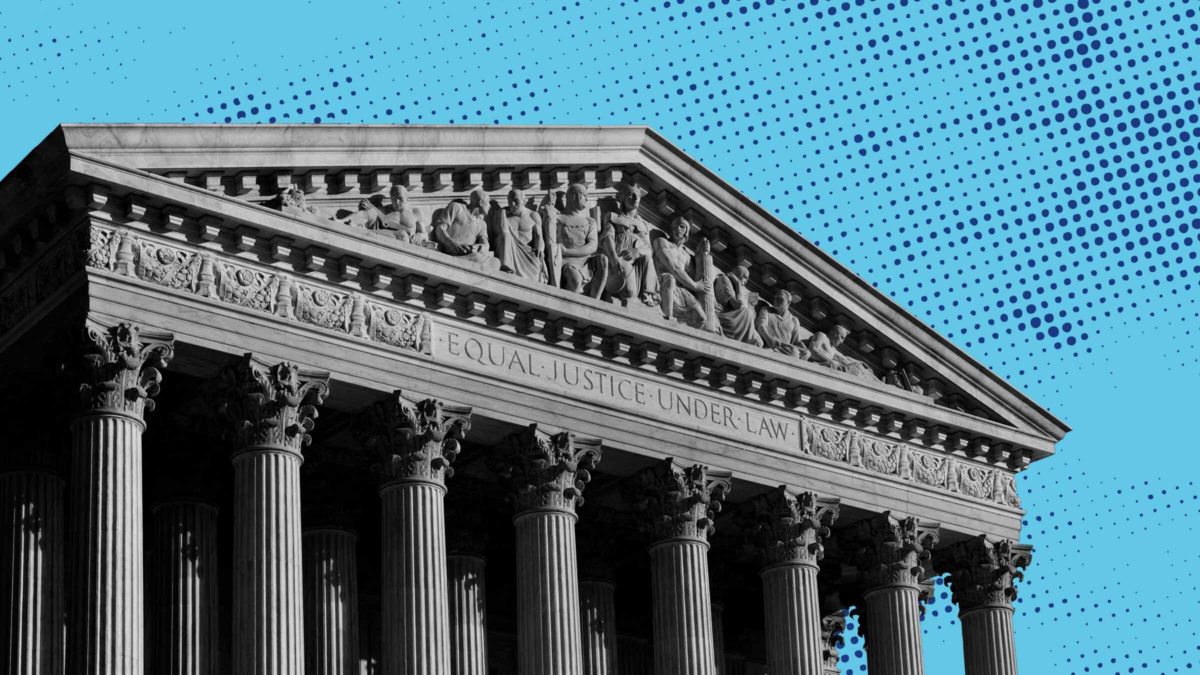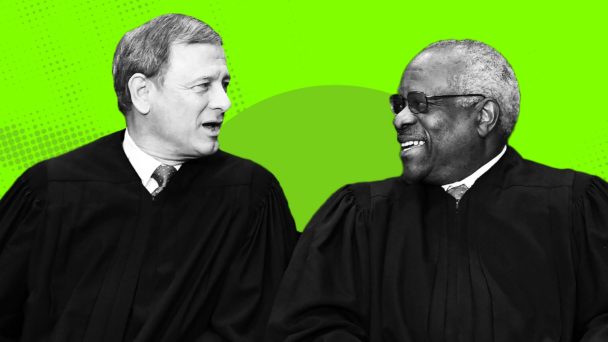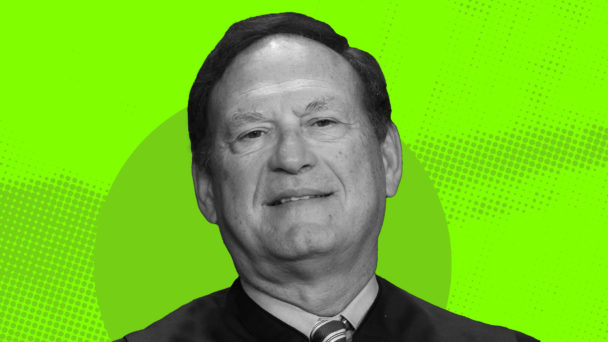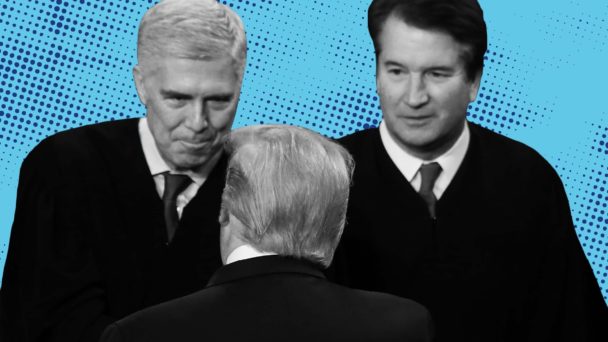In April 2020, at a gas station about fifteen minutes east of Omaha, Mark Pulsifer sold roughly 112 grams of meth. Mark made a second sale of about 29 grams of meth later that month. Unbeknownst to him, the buyer at both these sales was a confidential informant. Mark was indicted by a federal grand jury and pleaded guilty to one count of distributing 50 grams or more of methamphetamine, a felony. And because Mark had a prior drug conviction back in 2013, he faced a mandatory minimum sentence of 15 years in prison.
Mark has appealed his sentence all the way to the U.S. Supreme Court, where his case, Pulsifer v. United States, will be the first the justices hear when the Court’s new term begins on October 2. Years of Mark’s life—and the lives of thousands of others—hang in the balance. And whether or not they will spend those years incarcerated depends on what nine life-tenured Supreme Court justices decide a recently-enacted federal law means by the word “and.”
The First Step Act was a bipartisan criminal law reform bill signed into law by President Donald Trump in 2018. One of its key sentencing provisions is its so-called “safety valve,” which essentially makes mandatory minimums not mandatory anymore for some people convicted of nonviolent drug offenses. The statute assigns a point value to various offenses and says, in relevant part, that courts can deviate from mandatory minimums when sentencing a defendant who “does not have a) more than 4 criminal history points; b) a prior 3-point offense; and c) a prior 2-point violent offense.”
Mark has more than four criminal history points, and a prior three-point offense. But he doesn’t have a prior two-point violent offense, so his lawyers argued that he is eligible for relief under the Act. Their argument is pretty straightforward for anyone who understands how lists work: The law says you’re eligible if you don’t have A, B and C. WIthout C, you can’t have A, B, and C. Thus, he’s eligible for relief under the First Step Act—here, about five years off his otherwise-mandatory minimum sentence (a big difference to anyone, and perhaps especially to older adults like Mark, who is in sixties.)
But the U.S. Court of Appeals for the Eighth Circuit, which heard Mark’s appeal, found that the Act didn’t apply. According to the court—and to federal prosecutors—it isn’t enough to miss any one factor. As they read it, you’re eligible for a shorter sentence if you don’t have A, and don’t have B, and don’t have C, collectively. In the court’s view, Congress used “and” here “in its distributive sense,” which means that “the introductory phrase ‘does not have’” applies “across each statutory condition.” Because Mark has A and B, he’s out of luck.
Other federal appeals courts, however, think the Eight Circuit got it wrong. In a 2021 case about the same provision, the Ninth Circuit determined that “and” here is “unambiguously conjunctive,” so a person is only ineligible for relief if they meet all three conditions. That court reasoned that barring a defendant from relief because of any one factor would be to rewrite “and” into “or.” “Put another way, we hold that ‘and’ means ‘and,’” the court wrote in United States v. Lopez.
Both courts’ reading of the First Step Act’s requirements turns on the interpretation of what grammar nerds call a “conjunctive.” You might remember this type of disagreement from the Schoolhouse Rock classic, “Conjunction Junction, What’s Your Function?” Here, if the Eighth Circuit gets its way at the Supreme Court, the function would be “keeping more people in jail for a long time.”
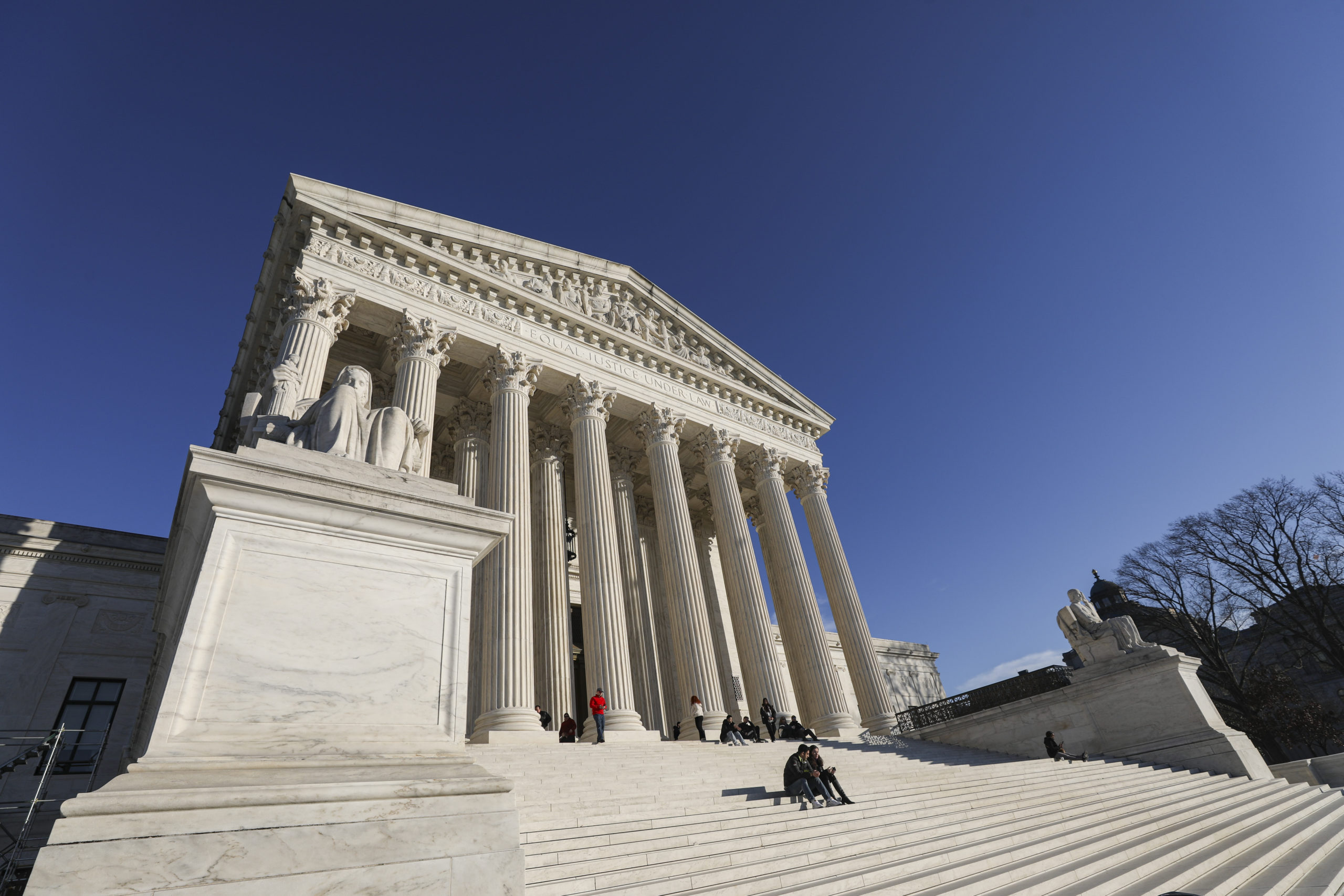
(Photo by Celal Gunes/Anadolu Agency via Getty Images)
Mind you, the purpose of the First Step Act was to reduce the federal prison population by giving judges discretion in sentencing, rather than requiring them to bring the hammer down indiscriminately on everyone who winds up before them. Against this backdrop, judicial substitutions of “or” in the place of “and” in the statutory text seem especially pernicious. “The debate about this statute stems from a dissonance between what the text plainly says and what the government (and some jurists) expect it to say,” the National Association of Federal Defenders writes in an amicus brief in support of Mark. “But that discomfort provides no license for courts to rewrite the statute.”
Additionally, a fundamental legal principle called the rule of lenity instructs that when laws are ambiguous—perhaps as evidenced by a disagreement between two federal appeals courts—judges should err on the side of liberty, rather than lock people up even longer. In an amicus brief, Families Against Mandatory Minimums, the ACLU, and the National Association of Criminal Defense Lawyers jointly urge the Court to apply the rule in Mark’s case. “If lenity does not apply here—when the statutory language has left more than two dozen jurists on the courts of appeals deeply divided about its meaning—lenity will never apply,” they write.
On top of all this, the First Step Act was supposed to be just that: a first step toward making the criminal legal system marginally less terrible. Dozens of organizations, including the Leadership Conference on Civil and Human Rights, the ACLU, and the NAACP Legal Defense Fund, urged Congress to vote no on the bill because it did not go far enough in, for example, addressing racial disparities in the prison system and excluding people convicted of any one of dozens of listed offenses from its protections. When the judiciary stymies the already-insufficient work of the legislature, future attempts to meaningfully undo the harms of the criminal legal system are pushed further out of reach. If the Supreme Court sends Mark to prison for the full mandatory minimum sentence, it would extinguish what little hope the law provided.
